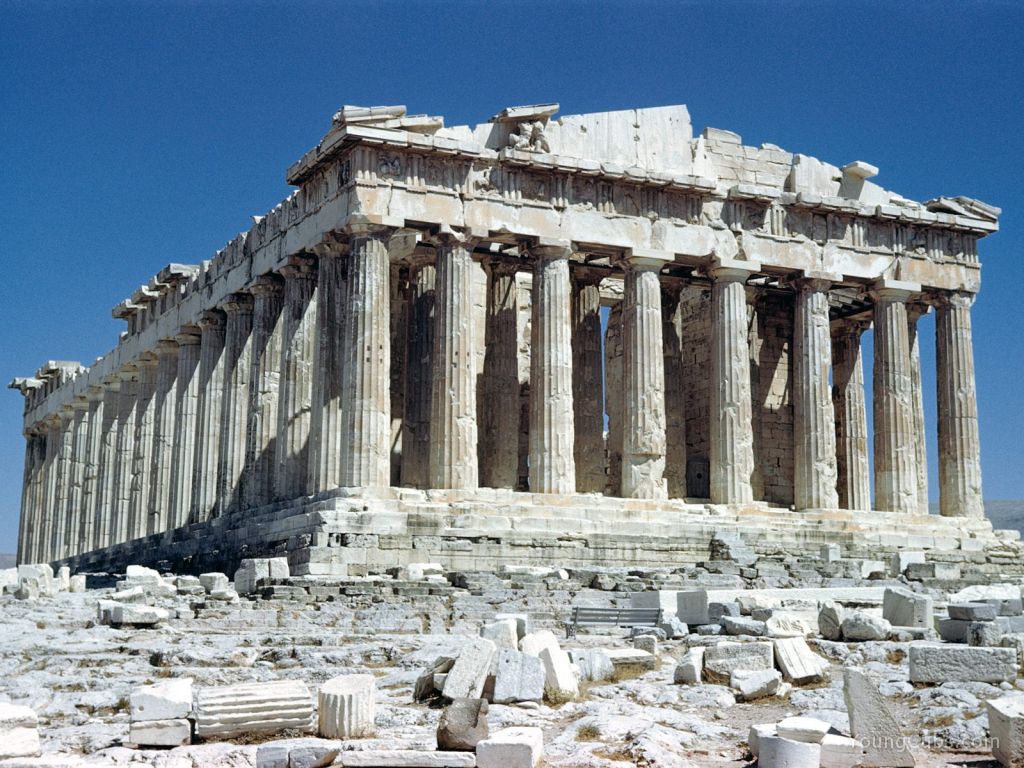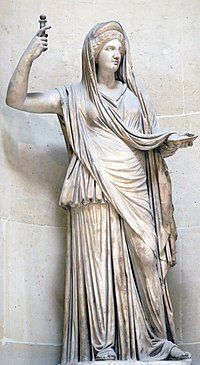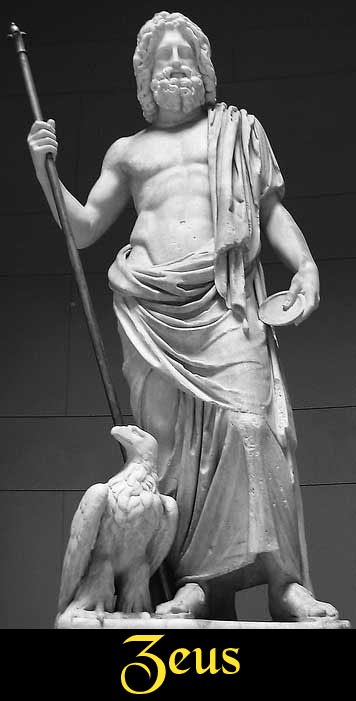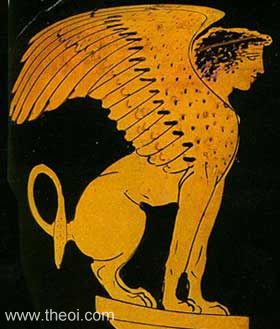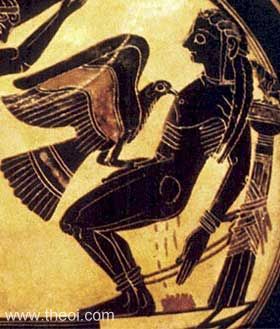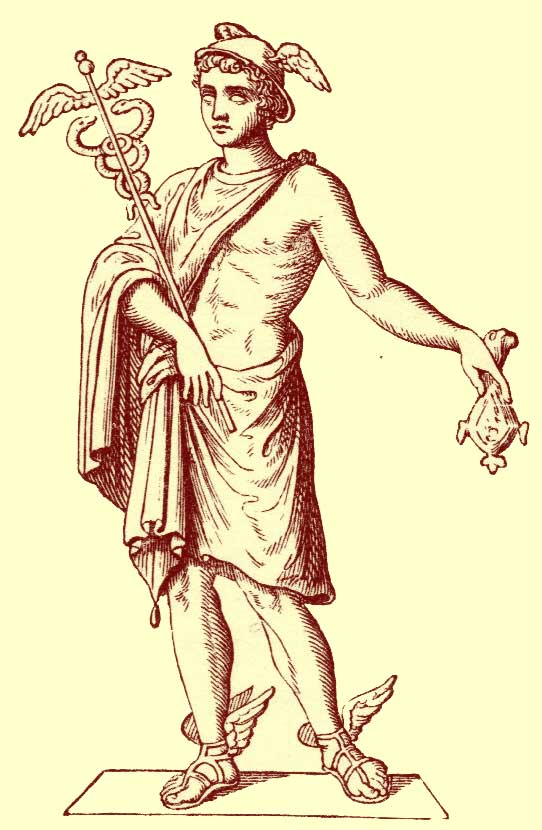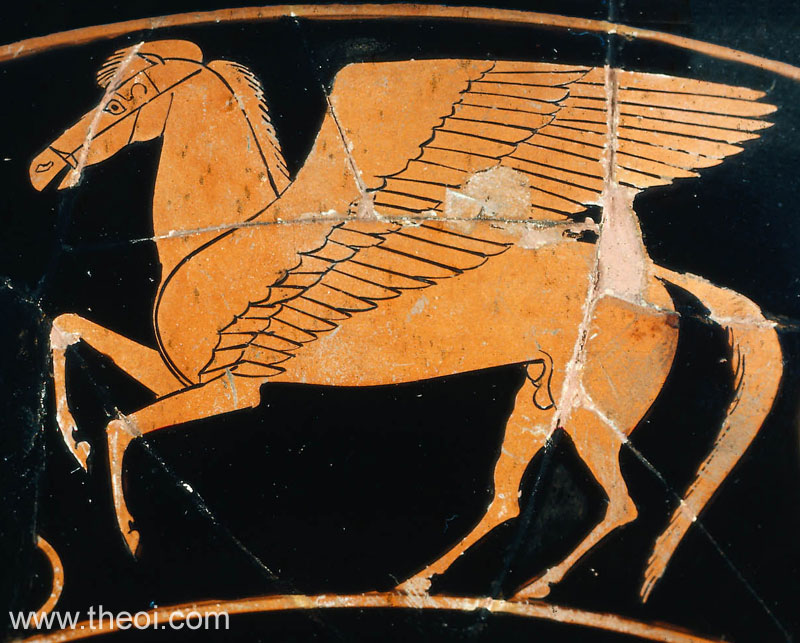Sorry I haven't updated in a while--college exams. :/ Ew. But now that those are all overwith, let's talk about important things, like dead ancient societies and their deities!
Every so often, I think I'm going to give a little tidbit about Romans-versus-Greeks. Now, it's true that the Romans had a superior army, that they were more united and less individualistic, that they did indeed defeat Greece and rule over them with a mighty empire for a very long time. Blah, blah, blah. I don't CARE if Rome conquered Greece, I still think Ancient Greece is cooler. Why? Roman government was relatively fascist--pretty similar to Sparta, actually, a city-state anomaly in Ancient Greece--and while I won't deny its lasting impact on modern civilization, they were somewhat unimaginative. Their more "sophisticated" city life was basically stolen from the Greeks--their architecture, with its arches and pillars, looks awfully familiar, does it not?

True, some of their technological advances were pretty amazing: the aqueducts that gave running water to all their cities was ingenius. But even then, we can't rightfully give them all the credit for our modern plumbing system, because thousands of years prior, the palace at Knossos, Crete had the world's first flushable toilet. (No joke!)
Rome tried to convince the world and themselves that they were not barbarians by showcasing their urban society: music, theater, gruesome gladiator fights to the death--wait, what? Yeah, they'd bring their kids like it was a sporting event, buy their roasted rats-on-a-stick as if they were hot dogs, and watch slaves fight to the death in creative ways. (Just in case you thought The Hunger Games actually invented that concept.) One thing that is cool, though, is that they'd sometimes plug up the arena, fill it with water, and have mock naval battles with small ships. Now that is pretty sweet, even I must admit.
Still, Rome's attempts at being a cultural mecca were kind of...desperate. They knew they could never live up to the sophistication of Greece's philosophy, music, art, and theater--so, instead of trying to stubbornly make their own thing, they just adopted Greece's. I guess that is a virtue, that when they saw someone else's ideas were better, they swallowed their pride and...plaigarized. Well, I guess I can't hate them for respecting Ancient Greece. They had the same gods watching over them, after all.
In fact, let's talk about the gods. Everyone knows that the Romans essentially stole the Greek gods, slapped some different names on them, and called it their own pantheon--I'll list as many as I can think of below. You'll notice that most of our planets are named after Roman gods, and you can probably guess why each of them seemed appropriate (Jupiter was the biggest planet, Neptune is blue, etc). Sometimes in old literature (say, Shakespeare) the names will be used interchangeably, so it's good to be familiar with both so that you understand the allusion.
But there are subtle differences between Roman and Greek religion. The Romans emphasized different aspects and traits of the gods, and emphasized some gods over others--and the differences are highly indicative of the cultural differences. It's quite interesting comparing the two. For instance, in Greek myths, Zeus and Jupiter are pretty similar--except when he's Zeus, the focus is often more on his romantic exploits, his rages and tantrums, his mistakes--his human side. But as Jupiter, he's generally a lot more stern and distant, much more of a responsible leader, and has better control over his human urges--he still has affairs, but there's that different nuance there, that he's more in control, it's merely an excercise of his godly privileges.
In comparing Pluto and Hades, the Romans had a little less dread for the God of the Dead--made mention of him in their literature and prayers, and made oaths by him more frequently--he was more respectable. Why? The Romans did not fear death the way the Greeks did. To the Romans, an honorable death was far more glorious than a long life--Elysium awaited a faithful soldier! Their devotion to Rome was more important than their own lives. While the Greeks did strongly believe in a blessed afterlife for heroes, and believed heroic deaths were noble, they liked their comfortable lives in the world above too much--they did not look forward to the Land of the Dead. Therefore, they avoided speaking his name except with euphemisms, and only the darkest cults made any sacrifices or altars to Hades. (Poor guy. :/ )
Ares, the Greek god of war, is a brutal, cruel god that the Greeks seem to have little respect for. But the Greeks adored Athena, their favorite, Athens' patron, the goddess of wisdom. She was the one they looked to in wartime, because she was an expert strategist--if she made a plan, it would not fail. The Greeks, clearly, valued brains over might. The very opposite is seen in the Roman pantheon: Mars, god of war, is their favorite and most important--and he is portrayed a little more positively. An important distinction is made: he is the god of a
just war--not just violence for violence's sake. On the other hand, while Athena becomes Minerva and has her place in the Roman pantheon, she is more obscure, not nearly so important as to the Greeks. Obviously, the difference between their values is clear. Obedience to the State and devotion to Rome is much more important than intelligence or wisdom...I guess...
So you can see why I, a total Romantic, would prefer the passionate Greeks to the Romans. Both have their good and bad points, I admit, and my preference is obviously a matter of opinion. The Romans may have been more successful, but I think the Greeks were happier. So I guess it just depends on what you want more...
Here's a basic list of Greek gods and their Roman names, just in case you run across them in a T.S. Eliot poem or something:
Zeus = Jupiter (occasionally, "Jove," which is where we get the word "jovial," which means to be "like Jove" but really refers to someone who is merry and boisterous)
Hera = Juno
Poseidon = Neptune
Hades = Pluto (the poor guy finally got a planet named after him and now it's been demoted...story of his life...)
Hermes = Mercury (we also have an English word "mercurial," which, though it literally means "like Mercury," it refers to someone who is always changing)
Kronos = Saturn
Ouranos (Kronos' father) = Uranus
Aphrodite = Venus
Ares = Mars
Artemis = Diana
Apollo = ...still Apollo, for some reason
Athena = Minerva (yes, this is where J.K. Rowling gets the professor Minerva McGonagall)
Persephone = Prosperpina
Demeter = Ceres (this is where we get our English word "cereal"!)
Hephaestus = Vulcan (I'm not even going to get into the Trekkies)
Dionysus = Bacchus
Hestia = Vesta
Eros = Cupid
Gaia (the Earth goddess) = Terra (this is where we get the word "terrestrial," meaning "pertaining to the earth," and "extraterrestrial," or "not of this earth")
So, what do you think? Am I being unfair to the Romans? Is there some accomplishment of theirs I am forgetting to mention? Which civilization do you prefer? I want to hear what you think.
Well, that's all I can think of for now, but if I remember more, you will be the first to know. Have a nice weekend, everybody!
~Meg
